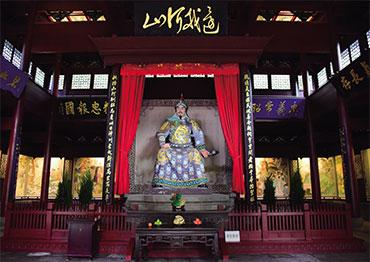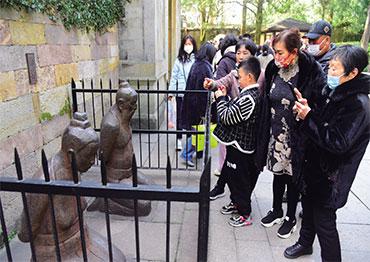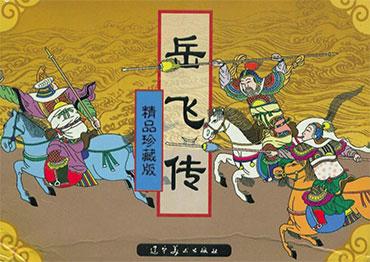This was the first time the Southern Song regime recovered a large area of lost territory. Yue Fei was appointed governor of the Qingyuan Army in what is now South China’s Guangxi Zhuang Autonomous Region, the highest officer in charge of local civil and military affairs.
However, his attempt to push further north and recover all the lost territory was opposed by a peace faction within the imperial court headed by prime minister Qin Hui, who believed that to further wage war would be too costly. This meant that all their efforts and achievements over the last decade, and all the lands and people they had recovered, would be lost again to their enemy.
Greatly disheartened, Yue retired from the army, and in order to observe the mourning period for his mother, who had passed away in 1136, handed over leadership to his subordinate, doing so without permission from the emperor.
But Emperor Gaozong used Yue Fei’s success in several battles as a bargaining chip to sign a peace treaty with the Jin in 1138. He agreed to give back all the lands that the Song armies had won back and offered a great tribute each year, recognizing the Jin as the sovereign.
Two years after signing the treaty, the Jin reneged on the deal, invading Song territory again in 1140. Stricken with panic, Emperor Gaozong summoned Yue Fei back to lead the Song army. Under his command, and with the assistance of many volunteer armies in the Jin-controlled northern lands, the Song army was victorious, recovering more and more lost territory.
Just when Yue Fei was threatening to force his way into the Jin capital close to present-day Harbin in Heilongjiang Province, Emperor Gaozong followed the advice of the peace faction and ordered Yue Fei to return. He defied the order at first, but the emperor sent 12 urgent summons carved of lacquered wood with the characters painted in gold, to call him back.
Knowing that the Jin would soon reoccupy the lands he had just recovered, Yue Fei wrote in tears his most celebrated poem Full River Red, which reflected his outrage toward the Jin invaders, as well as his sorrow for the wasted efforts to recoup the lost lands and people. Famed translator Xu Yuanchong, a professor at Peking University who died at the age of 100 in 2021, translated Yue’s poem as The River All Red.
The Jin realized that the Southern Song would not be easily defeated, so they were prepared to negotiate a truce on the condition that Yue Fei had to die. Framed by Qin Hui, Yue Fei was jailed for the crime of betraying the country. He denied the accusation even after a few months of cruel physical torture. Qin Hui and his followers failed to find a shred of evidence to prove their charge.
When asked by officials who felt compassion toward Yue Fei what crime he had committed, Qin Hui replied that although there was no certain proof he had betrayed the dynasty, maybe there was. The phrase mo xu you (“maybe there was”, or “to tacitly endorse”) is listed in the Chinese dictionary as an expression that refers to fabricated charges or official connivance.
Emperor Gaozong did not support Yue Fei because the general had defied his orders on several occasions. Yue Fei’s fate was sealed as political victim. He was murdered in 1142 amid accusations of betraying the country that he had dedicated his entire life to protecting. There is no solid evidence as to how Yue Fei died. Some stories say he was poisoned or hanged after being accused of treason by Qin Hui and his wife, or ambushed and killed on the way to his trial.
Twenty years later, Emperor Xiaozong ascended the throne as the second emperor of the Southern Song. He is believed to be the most exceptional emperor of the dynasty, demonstrating strong will to recover the lost lands of the empire. In 1169, Emperor Xiaozong restored Yue Fei’s reputation and posthumously granted him the name Wumu, with wu referring to his military achievements, and mu as a word to show respect.
During their lifetime, neither Qin Hui nor his wife were punished, in fact living out their days with a luxurious and influential life. Qin passed away peacefully in his mansion under the protection of the Jin. But later, during the Ming Dynasty, cast-iron statues of Qin, his wife and two subordinates were made in a kneeling posture and installed before Yue Fei’s tomb located by the West Lake in Hangzhou, where they can still be seen today.
Since his death, Yue Fei has been revered as a hero, evolving into the epitome of loyalty in Chinese culture. Today, people can still see his courage and vision in the poems and calligraphy works he left behind and feel just how much he sincerely wanted to recover his lands and save his people.

 Old Version
Old Version

